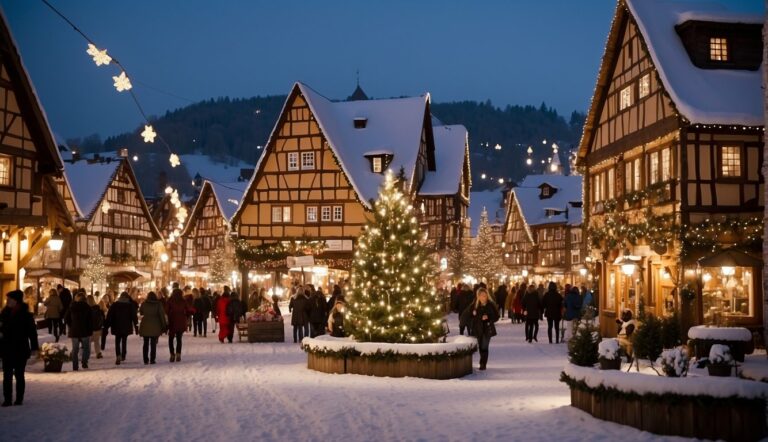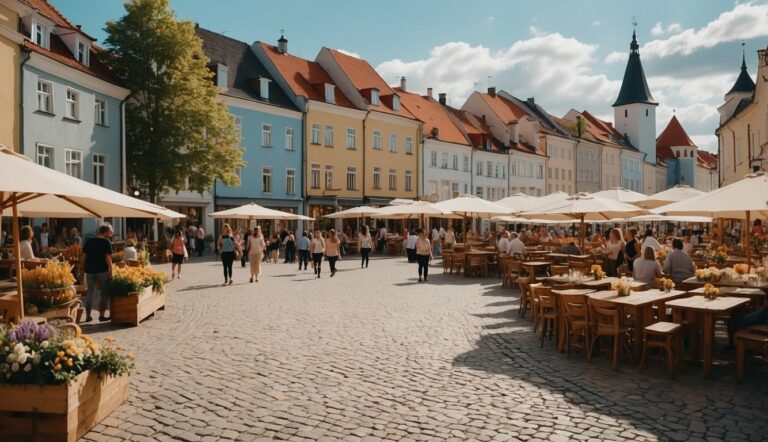Countries That Don’t Celebrate Christmas
When you think of December, visions of Christmas trees, decorations, lights, and festivities often come to mind. However, celebrating Christmas, traditionally a Christian holiday commemorating the birth of Jesus, is not a global phenomenon.
Christmas is a significant cultural and religious occasion in many countries around the world, but there are some countries that do not celebrate it as a public holiday or as part of their cultural traditions.
These nations may have predominant religions other than Christianity or prioritize different cultural festivities and observances.

In countries like Afghanistan, Algeria, Bhutan, North Korea, Libya, Mauritania, Sahrawi Arab Democratic Republic, Saudi Arabia, Somalia, Tajikistan, Tunisia, Turkmenistan, Uzbekistan, and Yemen, Christmas does not hold the same place in society as it does in traditionally Christian countries.
This lack of observance can be attributed to various factors, including religious beliefs, government policies, and cultural practices.
For instance, in these countries, Islam may be the major religion, and hence, Islamic festivals and observances take precedence over Christmas.
Furthermore, there are also nations with significant Buddhist populations, such as Mongolia and Bhutan, where Christmas is not a part of the cultural fabric.
While businesses, schools, and government offices remain operational on December 25th in these countries, other cultural and religious celebrations take centre stage throughout the year.
Thus, for travellers and expatriates in these regions, the Christmas period may be any like any other time of the year, devoid of the typical yuletide celebrations experienced elsewhere.
Understanding Christmas Celebrations Globally
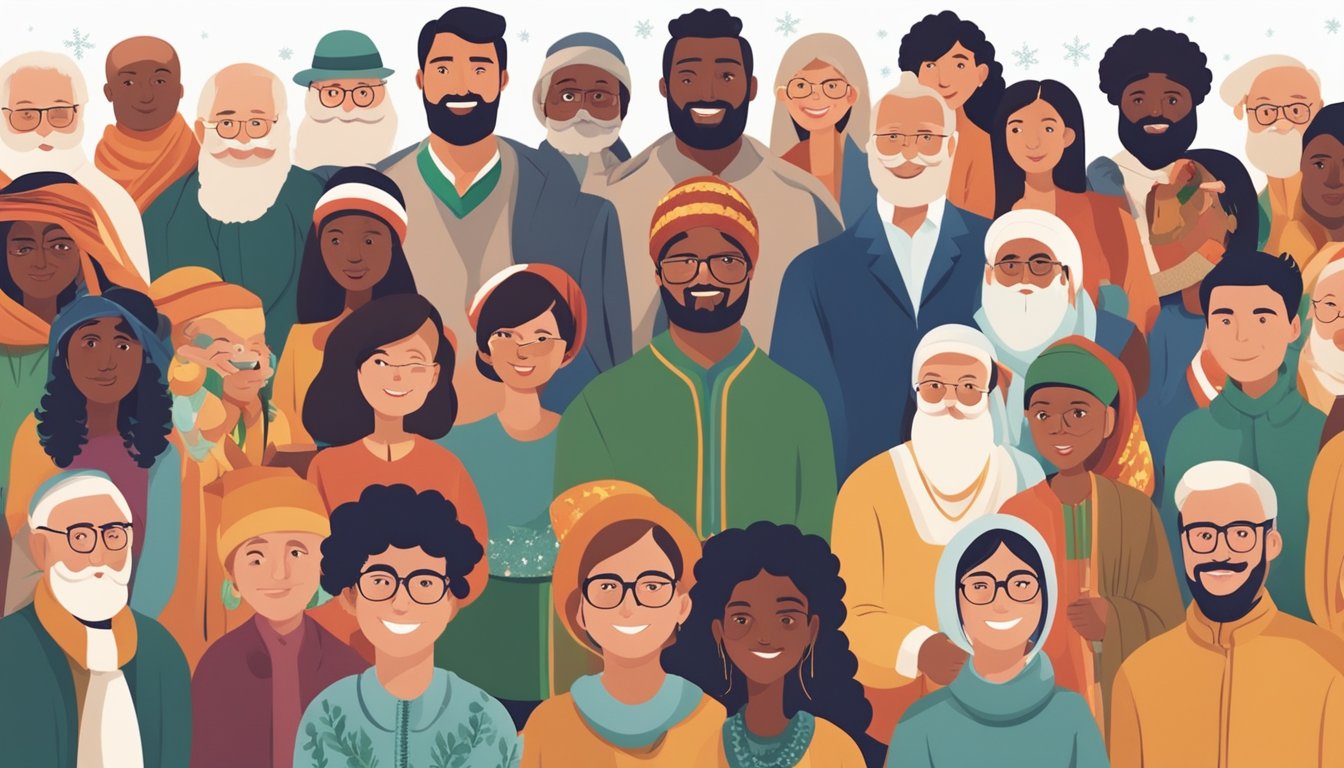
Christmas is a holiday associated with the celebration of the birth of Jesus Christ. Many around the world traditionally observe it on December 25th. The occasion is marked by an array of traditions, from gift-giving and caroling to festive decorations and religious ceremonies.
Western countries typically follow the Gregorian calendar with Christmas Eve on the 24th and Christmas Day on December 25th.
While Eastern Orthodox communities tend follow the Julian calendar, celebrating on January 7th.
Christmas Day is usually a public holiday in many nations, but it isn’t universally recognized.
Countries with a Christian population often treat Christmas as an official holiday, with governments and workplaces closed.
Public Holiday’s for Christmas vary by country.
- North America & Europe: Extensively observed with deeply embedded traditions.
- Asia & Middle East: Observance is limited; several countries do not recognize Christmas. For instance, Afghanistan and Saudi Arabia have no public holidays for Christmas.
In countries where Christmas isn’t part of the cultural or religious tradition, December 24th and 25th may be regular working days.
It’s important to note that even within countries where Christmas is not a public holiday, private celebrations may occur among expatriate communities or individuals practising Christianity.
Regardless, the widespread celebration of Christmas has reached a global audience and influenced various cultural practices worldwide. However, the extent to which Christmas is celebrated and recognized as a public holiday will differ significantly from country to country.
Countries With No Official Christmas Holiday
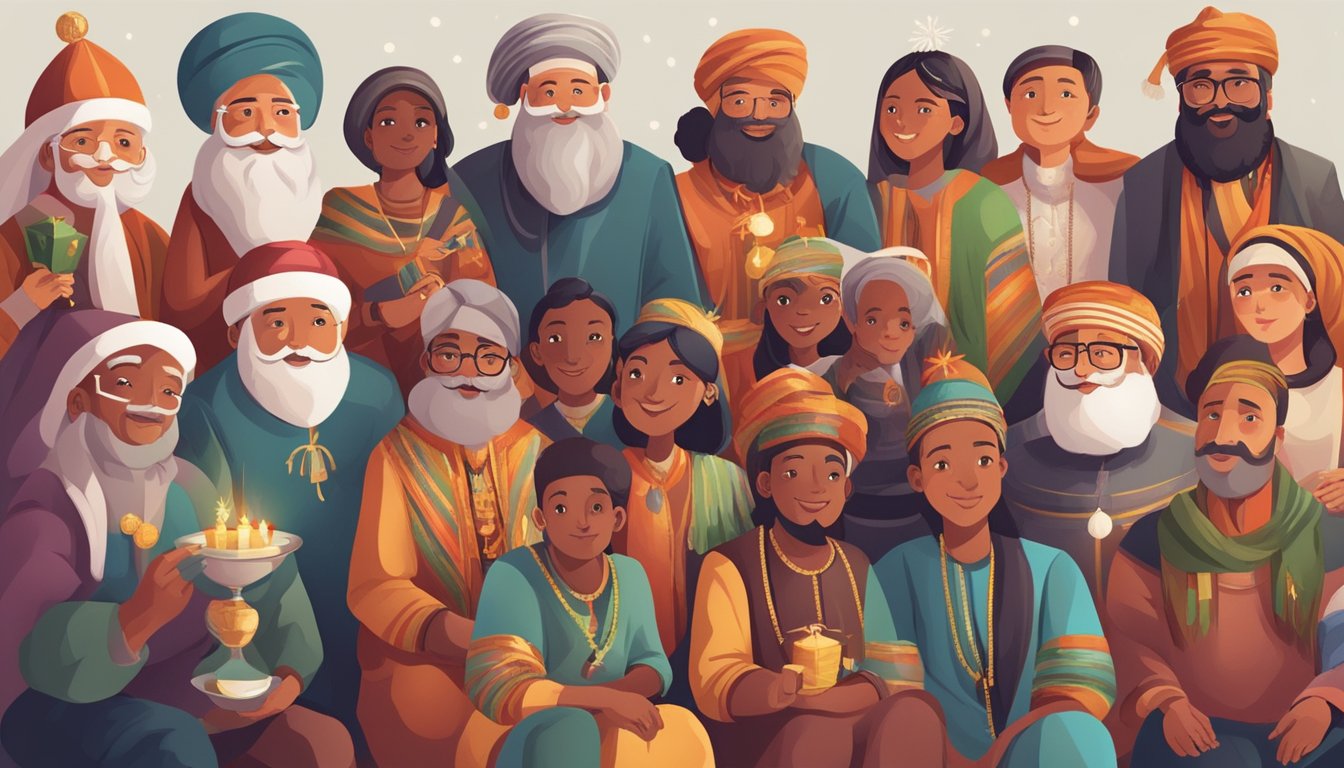
While Christmas is a global festivity many celebrate, several nations do not recognize it as a public holiday.
Middle Eastern Nations Without Christmas Celebrations
In the Middle East, where Islam is the predominant religion, certain countries such as Saudi Arabia and Yemen do not observe Christmas as a public holiday.
The Islamic faith, which most of their populations follow, celebrates religious occasions according to the Islamic calendar, and Christmas, a Christian holiday, is not among them.
South and Central Asian Countries Not Observing Christmas
Countries like Afghanistan, Tajikistan, and Uzbekistan do not have public holidays on December 25th.
These predominantly Muslim regions’ lack of Christmas celebrations aligns with their local customs and Islamic beliefs.
North Korean Christmas Ban
North Korea strictly prohibits Christmas celebrations. Christianity is often suppressed, and December 25th passes without any official recognition or public holiday status.
African Countries and Their Stance on Christmas
In Africa, nations such as Somalia, Mali, Comoros, and Mauritania do not mark Christmas as an official holiday largely due to the Islamic traditions and cultural practices that shape their holiday calendars.
Pacific and East Asian Perspectives on Christmas
Japan and China, countries where Buddhism and other local spiritual practices prevail, do not consider Christmas a public holiday.
Although some regional festivities may occur, these are not officially sanctioned as public holidays.
Secular Countries with Different Approaches to Christmas
Countries like Turkey and Israel, despite their secular frameworks, also do not observe Christmas as a public holiday.
Their diverse populations follow religious calendars that do not typically include December 25th as a celebratory date.
Other Nations Where Christmas is Unofficial
In Mongolia, where Buddhism is prevalent, and in Tunisia and Algeria in North Africa, among others, Christmas passes without official recognition.
Unique Observances and Non-Celebrations Across the Globe
While Russia and countries such as the United Arab Emirates acknowledge Christmas to some extent due to their Christian populations, according to the Julian calendar, the celebrations are not on December 25th but rather on January 7th. Other countries may have unique practices and customs but do not officially celebrate Christmas.
Religious and Cultural Reasons for Christmas Non-Recognition
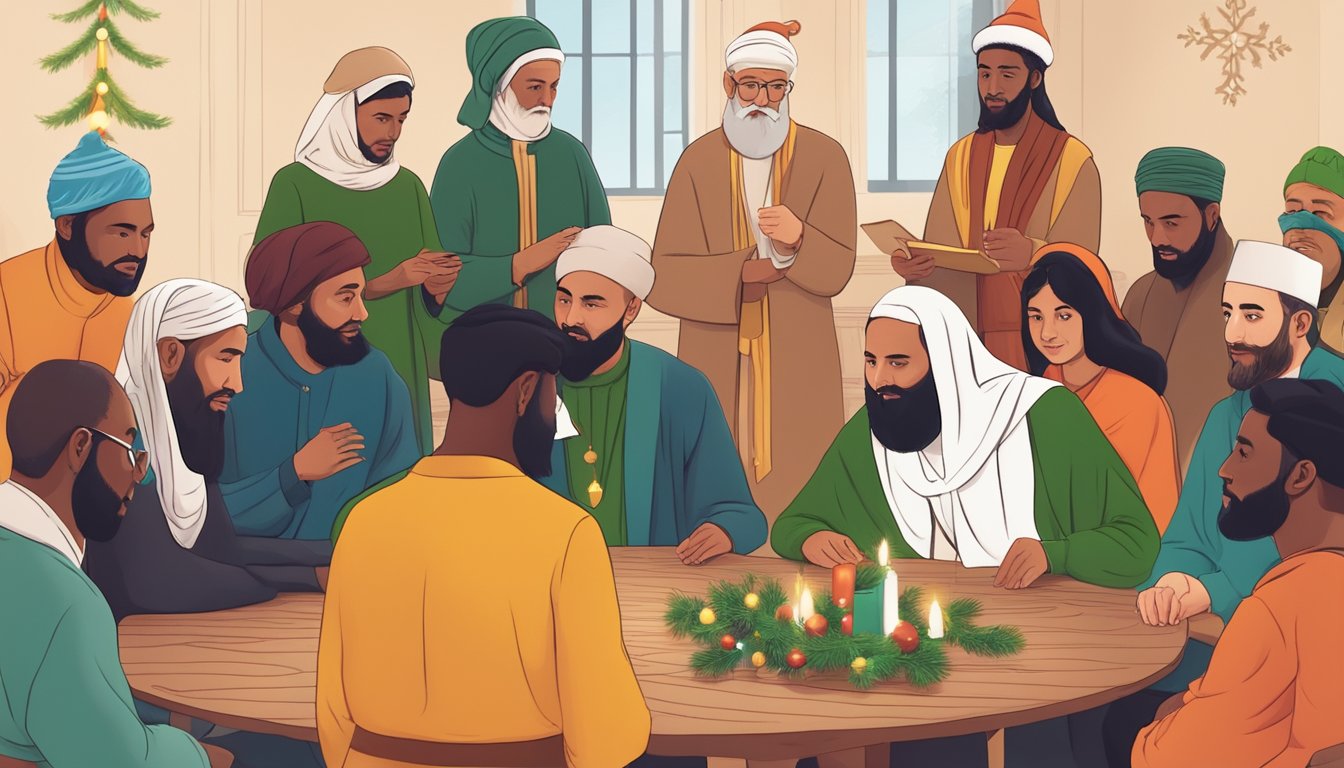
In various countries worldwide, Christmas is not recognized or celebrated due to specific religious beliefs and cultural practices—these influence whether or not Christmas is acknowledged as a public holiday or integrated into society normatively.
Islam and Christmas Celebrations
In countries with Islam as the dominant religion, Christmas is typically not celebrated as a public holiday.
The Muslim population, following Islamic teachings, does not recognize the Christian holiday of Christmas, which celebrates the birth of Jesus Christ.
Although Jesus (known as Isa in Islam) is considered a prophet, his birth is not celebrated in Islamic tradition. Therefore, nations such as Afghanistan, Saudi Arabia, and Somalia do not observe Christmas.
Buddhist Countries and Christmas
Countries with Buddhism as the main religion or philosophy, such as Bhutan, do not traditionally celebrate Christmas.
Buddhism is focused on the teachings of Gautama Buddha and does not include the celebration of Christmas, as it is a Christian holiday. However, non-religious cultural festivities may occur during the winter season.
Countries with Christian Minorities
In some countries, Christians constitute a minority and are free to celebrate Christmas privately.
However, Christmas may not be recognized as a national public holiday due to the country’s primary religion or secular stance.
For example, India has a significant number of Christians who celebrate Christmas, but as a culturally and religiously diverse nation, it does not declare Christmas a national holiday.
Secularism and its Impact on Christmas
Secular countries may also not recognize Christmas as a public holiday if the state maintains a separation between government and religious practices.
This approach aims to provide an unbiased governance that respects all religious backgrounds equally, without giving special consideration to Christian holidays such as Christmas.
In such nations, the celebration of Christmas is typically a private matter and not state-endorsed.
Social and Political Factors Influencing Christmas
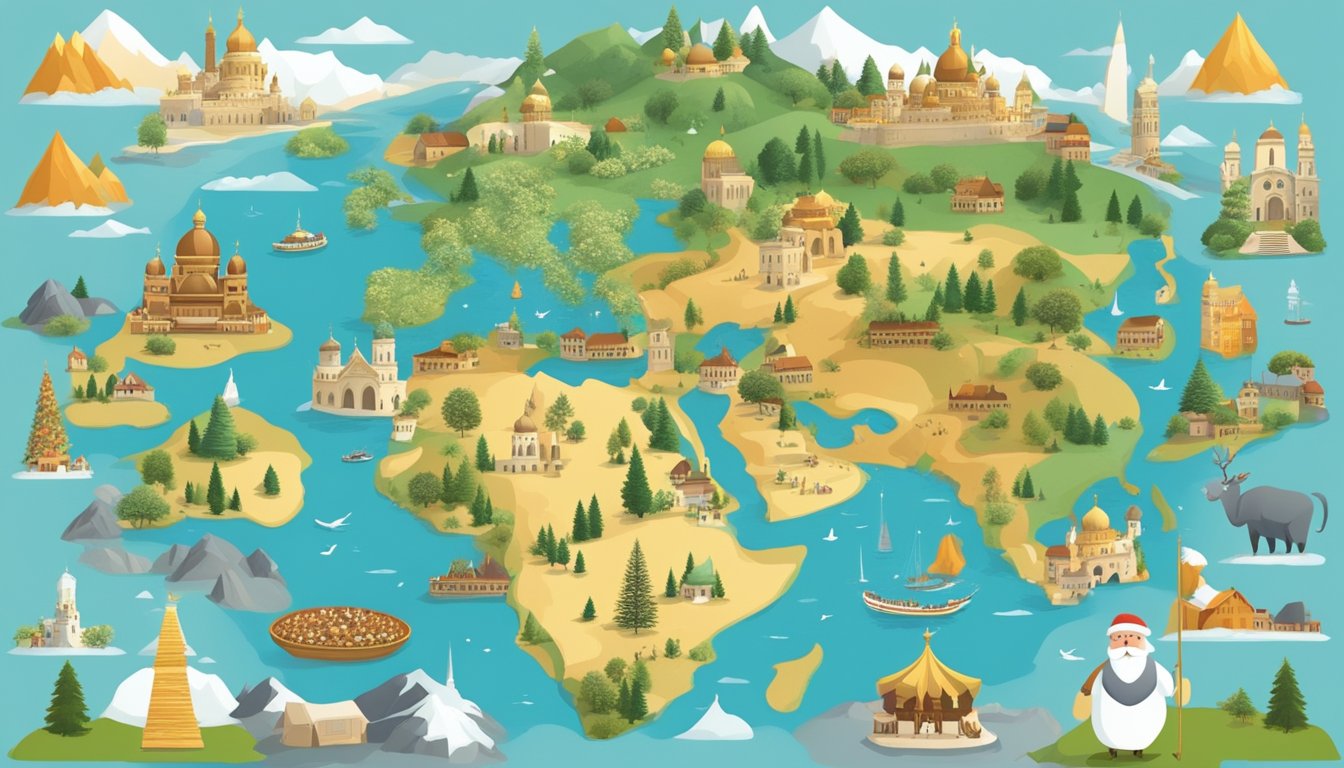
Social and political frameworks within a country can significantly impact the recognition and celebration of Christmas. These include government regulation and international relationships.
Government Policies Restricting Christmas
Governments can ban or refrain from recognizing Christmas as a public holiday through legislative measures.
In countries where Islam is the state religion, such as Saudi Arabia and Somalia, Christmas is not recognized due to its Christian roots, which are not in harmony with Islamic teachings. For instance:
- Saudi Arabia: The observance of Christmas is not supported by state policies as it is a Christian festival.
- Somalia: The government has banned the celebration of Christmas to prevent the influence of what it considers foreign customs.
Political Relationships Affecting Celebrations
International relations can influence how a country celebrates holidays.
Countries with strained relations with those where Christmas is widely celebrated may downplay or ignore Christmas festivities.
- North Korea: Due to its political ideology and isolation, Christmas is not celebrated in North Korea. Its relationship with countries where Christmas is predominant could influence this stance.
- Afghanistan: Political turmoil and a focus on Islamic traditions rather than Western customs have led to a lack of Christmas celebrations.
In these nations, decisions about public holidays reflect wider political and cultural realities rather than religious observations alone.
Economic and Commercial Aspects of Christmas

Despite not celebrating Christmas, several countries experience a significant intersection of the holiday season with their economies and commercial sectors. This is primarily evident in the business and tourism industries.
The Business Side of Christmas in Non-Celebrating Countries
In countries that do not recognize Christmas as a public holiday, businesses nonetheless observe an uptick in activity during the globally celebrated season.
Retail sectors in these countries often market products that align with the festive season to cater to foreign expatriates or to tap into the widespread commercial aspect of Christmas.
Shops may sell Christmas-related goods such as decorations, gifts, and greeting cards, primarily to the international community and tourists who celebrate the holiday.
Impact of Christmas on Tourism in Countries That Don’t Celebrate
Tourism sectors in non-celebrating countries can experience varying impacts during the Christmas season.
Countries with notable historic or leisure destinations may see more foreign visitors seeking unconventional holiday experiences.
Tourist establishments in these regions might offer Christmas-themed events or specials to attract travellers who wish to combine the seasonal festivities with the unique cultural offerings of the host country.
Conversely, the absence of official Christmas celebrations can also attract tourists interested in travel experiences untouched by widespread commercialization.
Frequently Asked Questions
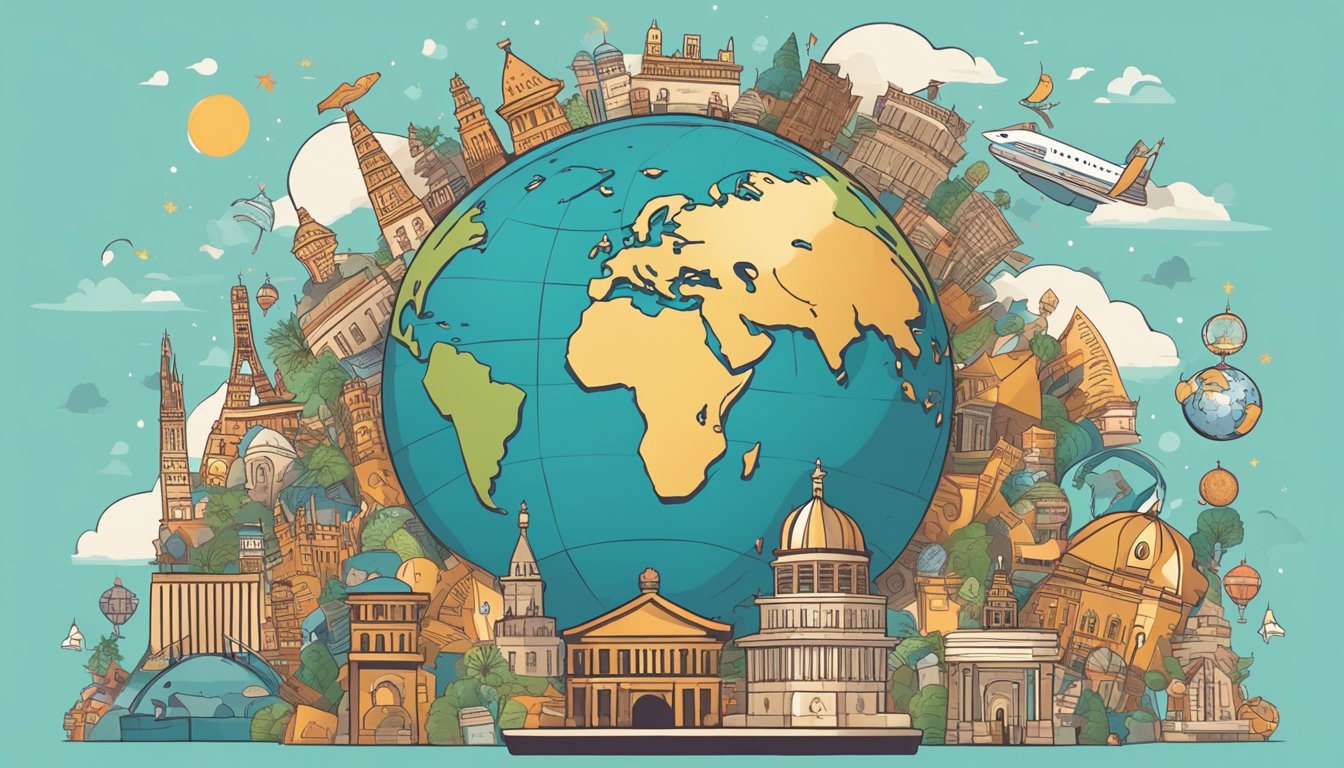
Which cultures do not observe Christmas traditions?
Many cultures that do not observe Christmas traditions are rooted in religions other than Christianity, such as Buddhism and Islam, or they may have secular or alternative belief systems.
What are examples of countries where Christmas is not a public holiday?
Countries where Christmas is not recognized as a public holiday include Afghanistan, Algeria, Bhutan, North Korea, Libya, Mauritania, Sahrawi Arab Democratic Republic, Saudi Arabia, Somalia, Tajikistan, Tunisia, Turkmenistan, Uzbekistan, and Yemen.
How do different belief systems around the world affect Christmas celebrations?
Different belief systems can impact Christmas celebrations by either integrating local traditions, downplaying the religious significance, or not observing the holiday due to contrasting religious calendars and doctrinal teachings.
In which countries is Christmas celebrated on a date other than December 25th?
Some countries, particularly those with Orthodox Christian traditions like Russia and Ukraine, celebrate Christmas on January 7th due to the difference between the Gregorian and Julian calendars.
How does the celebration of Christmas differ in countries with non-Christian majorities?
In countries with non-Christian majorities, Christmas may be celebrated as a commercial or cultural event rather than a religious occasion. Decorations and festivities often occur in commercial districts and specific communities without official public holiday status.


